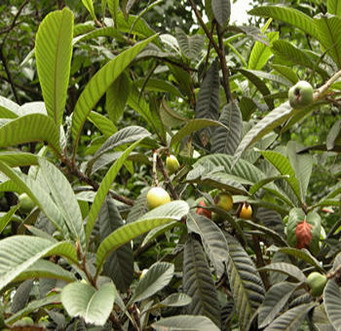Products
Contact us
- Changsha Herbal Ingredient Co.,Ltd
- Tel: 0086-731-88250818
- Add:No.56,Zhanxing Rd,Changsha,China,410205.
 sales@herbal-ingredient.com
sales@herbal-ingredient.com CHI-extracts
CHI-extracts

Pygeum Africanum Extract
Latin Name:Pygeum Africanum
Active Ingredient:Phytosteroles
CAS No:/
Specification:10;1,2.5%Phytosteroles
MOQ:1kg
Lead Time:Within 7days after confirming order
Pygeum Africanum Extract Information:
Plant original: Pygeum Africanum
Specifications: 2.5% Phytosteroles Test by UV
Molecular Formula: C29H50O
Molecular Mass: 414
Pygeum africanum is a large evergreen tree found in central and southern Africa. The extracts from the pygeum bark contain several compounds thought to be helpful in prostate health. Pygeum extracts have been used for more than 40 years in France, Germany, and Austria for patients suffering with prostate enlargement. Benign prostatic hyperplasia (BPH), a nonmalignant enlargement of the prostate that occurs in most men over 60, can lead to urinary frequency and nocturia (waking up at night to go to the bathroom). Frequent interruption of sleep leads to daytime tiredness. The pharmacologic use of plants and herbs for the treatment of BPH has been growing steadily and a well-known herb used for this purpose is saw palmetto. The extract of the African prune tree, Pygeum africanum, is one of several herbal agents used by many men who have BPH.
What's in Pygeum africanum bark?
The extracts include beta-sitosterol, other plant estrogens, triterpenes, and certain compounds known as ferulic acids.
Benefits:
Scientific evidence reviewed by Medline Plus reports that pygeum most notably improves symptoms in individuals diagnosed with BPH. Individuals noticed that pygeum significantly reduced urinary frequency and pain during urination. Other symptoms of BPH, like inflammation and night-time urination, also decreased in users who took pygeum supplements. Consult a health care professional if you experience urinary complications.
Dosage:
Clinical studies reviewed by Medline Plus report that 75 to 200mg of Pygeum africanum bark extract daily have been used to treat individuals with benign prostatic hypertrophy. Standardized doses of the extract were administered orally in a capsule once a day or divided into two doses. Benefits may take several weeks to occur during use, reports Memorial Sloan-Kettering Cancer Center. It is important to consult a physician before treating yourself with pygeum.
Side Effects:
Pygeum use has been reported as safe at the recommended doses. No severe side effects have been reported but mild symptoms include diarrhea, stomach pain, nausea and constipation. Long term pygeum use for more than 12 months has not been studied, reports Medline Plus. There is also lack of evidence to recommend pygeum for use in pregnant women and children.




